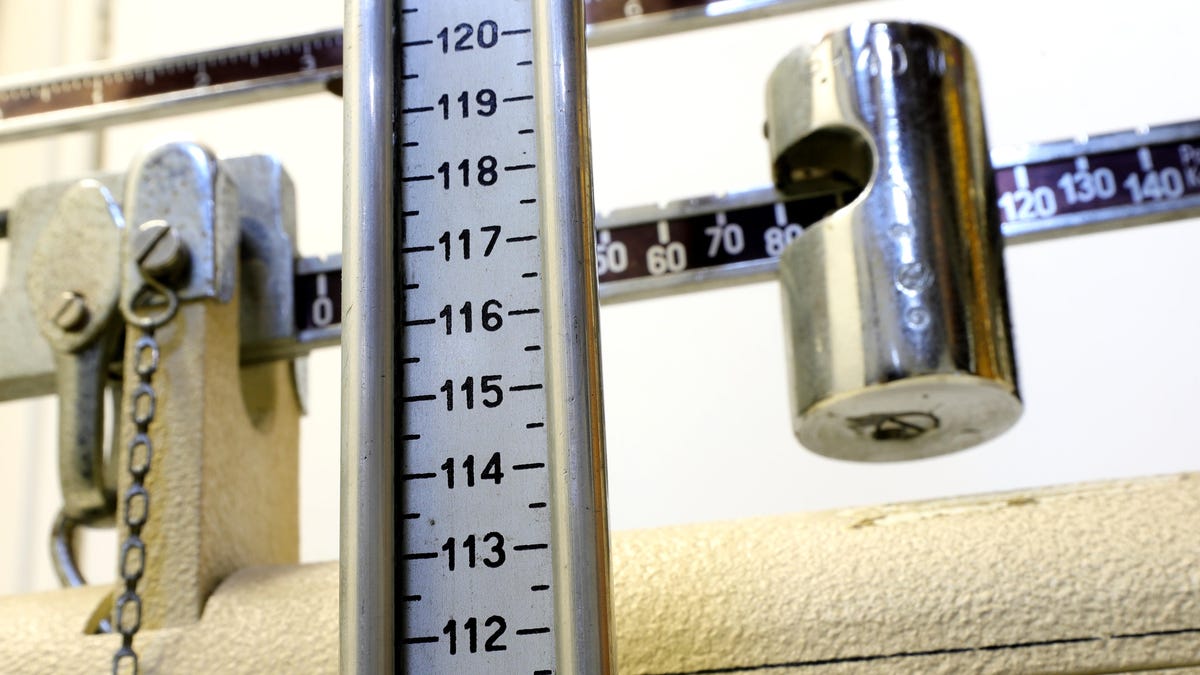How to Protect Your Child From Weight Talk at the Doctor's Office
People with disordered eating and body image issues can often trace their experience to an early childhood doctor’s appointment when their weight or size was characterized as a problem to solve. And whether you were prescribed diets as a...

People with disordered eating and body image issues can often trace their experience to an early childhood doctor’s appointment when their weight or size was characterized as a problem to solve. And whether you were prescribed diets as a child or not, you are right to want to protect your own children from the shame of being told their body is wrong, and the loss of their intuitive connection to their own appetite.
As journalist Virgina Sole-Smith wrote in her book Fat Talk: Parenting in the Age of Diet Culture, “It sounds counterintuitive, but one of the most important things parents can do to benefit their children’s health is take weight out of every health-related conversation.”
When babies are newly born, their weight (and rate of gain) carries such gravity in those frequent early doctor’s appointments. Their position on the ever-present growth chart comforts us that they are starting life on the right foot…or cautions us there could be a problem down the road.
As children get older, some pediatricians continue to mark those graphs and casually inform us where their growth trajectory falls in comparison to other children. But that’s not necessarily helpful information for you, or for your child.
What to know about growth charts
Have you always assumed that the data about percentiles on a child’s growth chart is somehow actually based on accurate data for the current population? According to Sole-Smith, the Body Mass Index charts used by most doctors are based on children’s weights from 1963 to 1994. How useful could it be to know that your child is smaller or larger than X percent of children their age 30-60 years ago?
Another major drawback of comparing bodies based on BMI is that it doesn’t account for muscle mass. And another thing? Population data can’t convey the great variability in the way a person’s body changes during puberty.
The elephant in the exam room—provider bias
When a pediatrician prescribes food restriction for your growing child, you may feel obligated to follow through, as this same doctor has successfully supported and shepherded you and your child through so many health worries before. But even great, compassionate doctors may be operating under pervasive diet culture and weight bias.
Medical students are inundated with messages about the danger of obesity and emerge into practice ready to slay the beast at all costs. Treating patients in a weight-neutral way is still pretty radical.
“All too often, providers view patients in bigger bodies (as well as poor patients, disabled patients, and patients of color or non-conforming gender identities) as problems to fix,” Sole-Smith wrote. “And when their weight loss prescriptions don’t work, doctors view those same patients as noncompliant and uncooperative.”
Unfortunately, as recently as January 2023, the American Academy of Pediatrics proposed guidelines for treating “obesity” (a stigmatizing label for bodies that are larger than an arbitrary threshold) in children as young as 2 years old. The guidelines include recommending weight loss drugs or surgery for teenagers.
Dangers of weight-shaming children
It seems, however, the American Academy of Pediatrics knows that focusing on a child’s weight is harmful. “The data on the overlap between eating disorders and higher body weight is substantial enough that in 2016, the American Academy of Pediatrics published a report called Preventing Obesity and Eating Disorders in Adolescents in which they strongly advised pediatricians to limit their discussion of weight and avoid talk of dieting,” Sole-Smith wrote.
Children who are encouraged by doctors to lose weight are not only at risk for eating disorders, they are at risk for avoiding medical care later in life due to shame and a lack of trust.
How to talk to your pediatrician about weight talk
Start the conversation before their appointment
Before your child’s next well visit, send a message to the doctor about avoiding discussion of weight. By having an open conversation with the pediatrician about weight-shaming and diet talk, you invite them to share your commitment to fostering a positive body image and healthy relationship with food for your child.
“You can write a short note explaining that you don’t want to discuss weight or BMI in front of your child (but are happy to answer the provider’s questions in a private conversation), and either email it through your clinic’s Patient Portal or ask the receptionist to pass it to the doctor when you check in for the appointment,” Sole-Smith wrote.
If you don’t know where to start composing such a note, check out these resources:
Skip the scale
At the appointment ask for a blind weigh-in (the child’s back is turned to the scale and the nurse doesn’t announce their weight out loud), or decline having your child weighed at all.
Sole-Smith suggests phrases she picked up from a pediatric nurse practitioner: “We trust her body and know she’s growing well,” or “I have no reason to worry about her weight.”
Be an advocate during the appointment
If the doctor starts to talk about weight or dieting, politely but firmly decline any suggestions to restrict food or count calories. Stress your commitment to a health-focused approach rather than a weight-focused one.
No matter the reason for your child’s appointment or what comes up, encourage them to be involved in the conversation. By encouraging them to ask the practitioner questions and speak up for themselves, you teach them to self-advocate and feel more powerful in vulnerable medical encounters.
Of course, a child’s weight is not always irrelevant. Let the practitioner know that you understand the valid reasons for monitoring a child’s weight at the doctor’s office: such as to identify diabetes and eating disorders, and to properly dose medications. At the same time, you can make it clear that you do not believe it is ok to monitor a child’s weight for the sole purpose of stigmatizing, pathologizing, or reducing their weight.

 Koichiko
Koichiko 

























![Are You Still Optimizing for Rankings? AI Search May Not Care. [Webinar] via @sejournal, @hethr_campbell](https://www.searchenginejournal.com/wp-content/uploads/2025/06/1-1-307.png)





